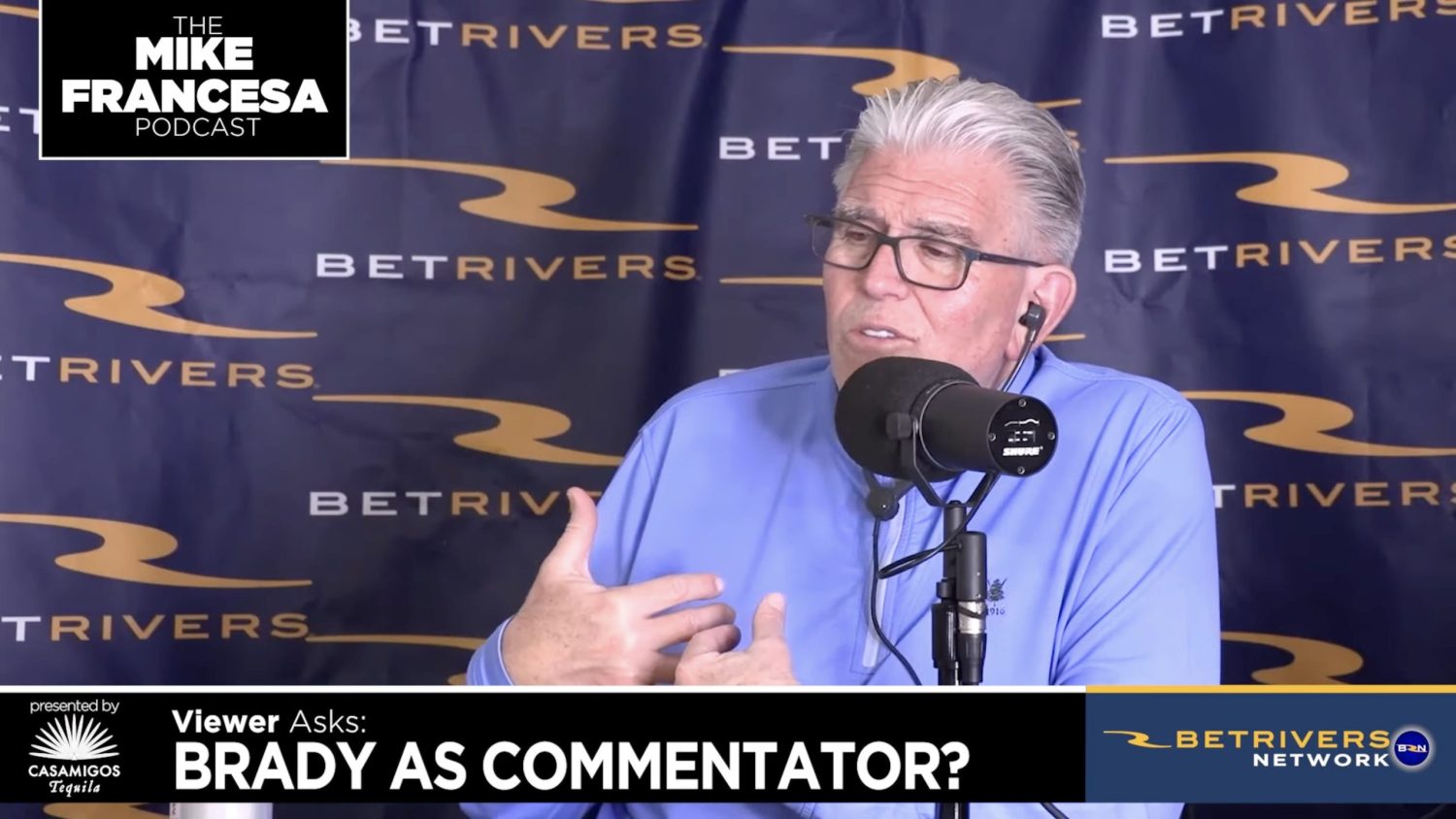Once upon a time, when Jemele Hill called Donald Trump a “white supremacist” on Twitter, ESPN forced the anchor to apologize.
One month later, when Hill criticized Jerry Jones for his stance on players protesting racial injustice, the network suspended her for violating its social media guidelines.
For many decades, ESPN prided itself on never allowing any individual talent to outshine the brand. Even Dan Patrick and Keith Olbermann were once reprimanded for displaying too much humor on SportsCenter. They were ordered to slow down the jokes, and quit calling their version of SportsCenter “The Big Show.”
But now, we are in a new media age. The middle class has been willowed out in Bristol, replaced with high-priced superstars such as Stephen A. Smith and Pat McAfee.
And they don’t answer to anybody, because they don’t just outshine the brand.
They’re bigger than the entire company.
McAfee literally answers to nobody, considering he enjoys full creative control of his show. The ex-Colts punter built his program into a powerhouse long before joining Disney, and didn’t want to relinquish the reins.
If ESPN wanted McAfee, they would be the ones forced to make concessions. McAfee went on to ink a five-year, $85 million deal with the network just as it was completing a gruesome round of layoffs.
ESPN was counting on McAfee to attract younger viewers, and figured any resulting difficulties would be worth it. But it’s apparent not everybody in the company agrees. The New York Post published a story last week detailing McAfee’s lackluster TV ratings, right on the heels of Aaron Rodgers falsely implying on ESPN’s airwaves that Jimmy Kimmel was on the Jeffrey Epstein list.
Kimmel, one of the biggest stars at Disney, threatened to sue Rodgers for defamation.
McAfee, in turn, threatened ESPN management. He blamed Norby Williamson for the unflattering Post story, calling the longtime exec a “rat.”
“There are folks actively trying to sabotage us from within ESPN,” said McAfee. “More specifically, I believe Norby Williamson is the guy attempting to sabotage our program.”
Full clip of Pat McAfee accusing ESPN Head of Event and Studio Production Norby Williamson of “sabotage” pic.twitter.com/sMFpa0Qk7q
— Awful Announcing (@awfulannouncing) January 5, 2024
ESPN responded with a Friday afternoon statement extolling McAfee for his success. He wasn’t disciplined for his attack on Williamson.
— Richard Deitsch (@richarddeitsch) January 6, 2024
When McAfee returned to the air Monday, he expressed no remorse.
Pat McAfee “don’t take back anything” he said about Norby Williamson, but insists his relationship with ESPN is “strong” pic.twitter.com/U3YZe37O6n
— Awful Announcing (@awfulannouncing) January 8, 2024
McAfee’s relationship with ESPN is unprecedented, and the fallout from his unhinged interviews with Rogers proves it. Hill said last week there’s no bigger sin in the Disney ecosystem than “host-on-host crime or talent-on-talent crime.”
But McAfee is beyond the ecosystem. He has nothing to fear.
As Dan Le Batard put it, McAfee isn’t some “some scared insecure journalist in the vanity business who’s interested in respecting authority.” He’s a media mogul who’s already fabulously wealthy.
His career won’t end when his deal with ESPN inevitably falls apart. In fact, a messy divorce would probably only add to his cache.
Le Batard is an example of that, albeit on a slightly smaller scale. When he left ESPN, he inked a $50 million contract deal with DraftKings while building his own company, Meadowlark Media. ESPN is no longer the gatekeeper.
The same dynamics apply to Smith, who’s spent the last week attacking Jason Whitlock for calming he didn’t write his autobiography, among other insults.
Smith responded briefly on First Take before delving into an epic 40-minute attack on Whitlock on his independent podcast. While Smith says he notified his bosses at ESPN, he certainly wasn’t asking for permission.
On his podcast, Smith said Whitlock is worse than a white supremacist. “He is the worst, most despicable, lying, no-good, fat-a– human being I have ever known in my life,” bellowed Smith.
— sportsvids99 (@sportsvids991) January 11, 2024
Whitlock, a disgraced troll who now rails against women’s suffrage, is feasting off the attention. Smith’s rant undoubtedly perpetuated the news cycle.
ESPN management probably doesn’t love that. But what are they gonna do, harangue Smith during a conference call? Now earning roughly $12 million annually, Smith led First Take to new viewership heights in 2023. Without him, ESPN’s signature debate show would crumble.
ESPN is now beholden to the talent, and not the other way around. It’s not a secret the network wants to head towards a subscription-based model, which means ESPN needs to fill its lineup with stars. In that spirit, the Pat McAfee Show is doing exactly what ESPN wants.
When Rodgers is on, McAfee often surpasses 100,000 live concurrent viewers on his YouTube channel, which is huge for any livestream. It’s easy to imagine ESPN one day using McAfee’s exclusive content as a way to drive people to its streaming service.
A similar plan could also take hold with Smith.
Back when cable ruled, ESPN enjoyed a captive audience. Now, that viewership is splintered.
To pull in eyeballs, ESPN correctly realized the shackles need to be removed from its biggest stars. The brand may be splintered in the process, but that’s a price worth paying.
At least, that’s what’s been determined … for now.







